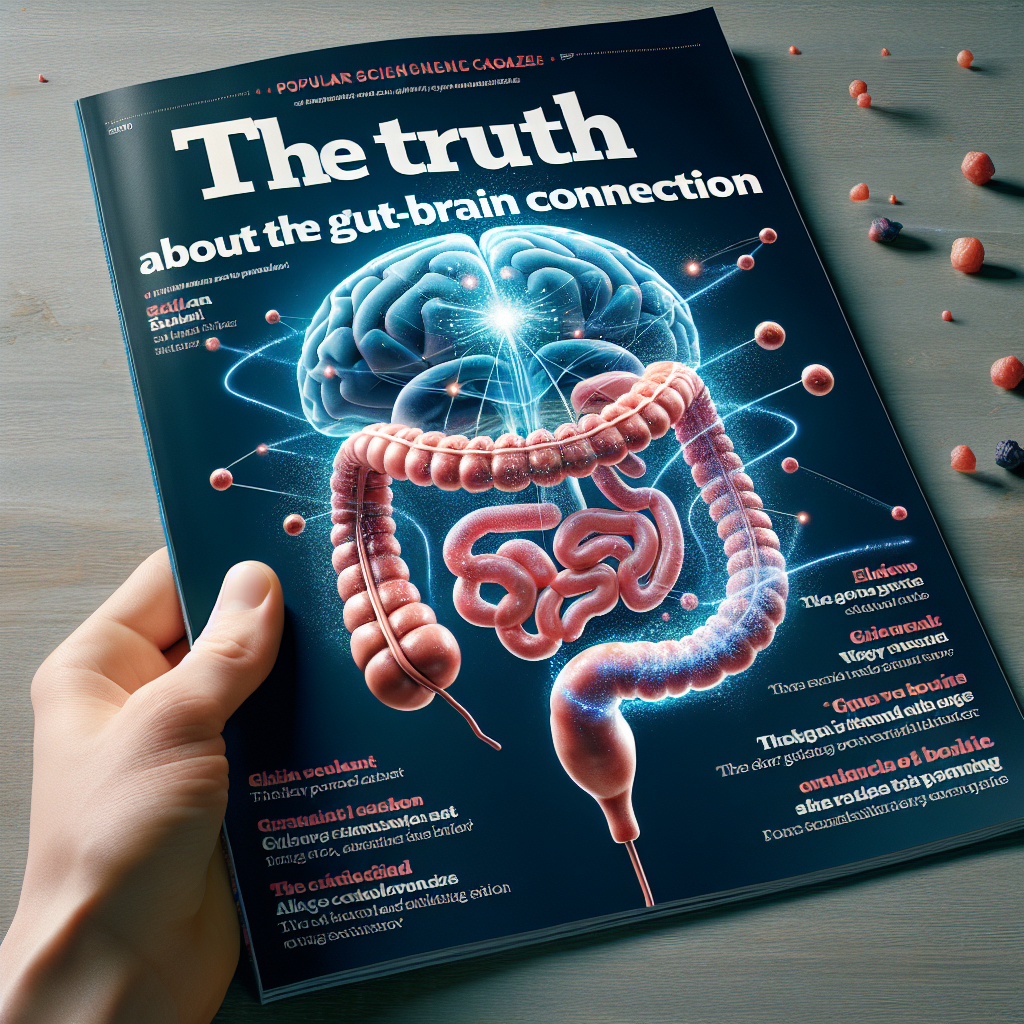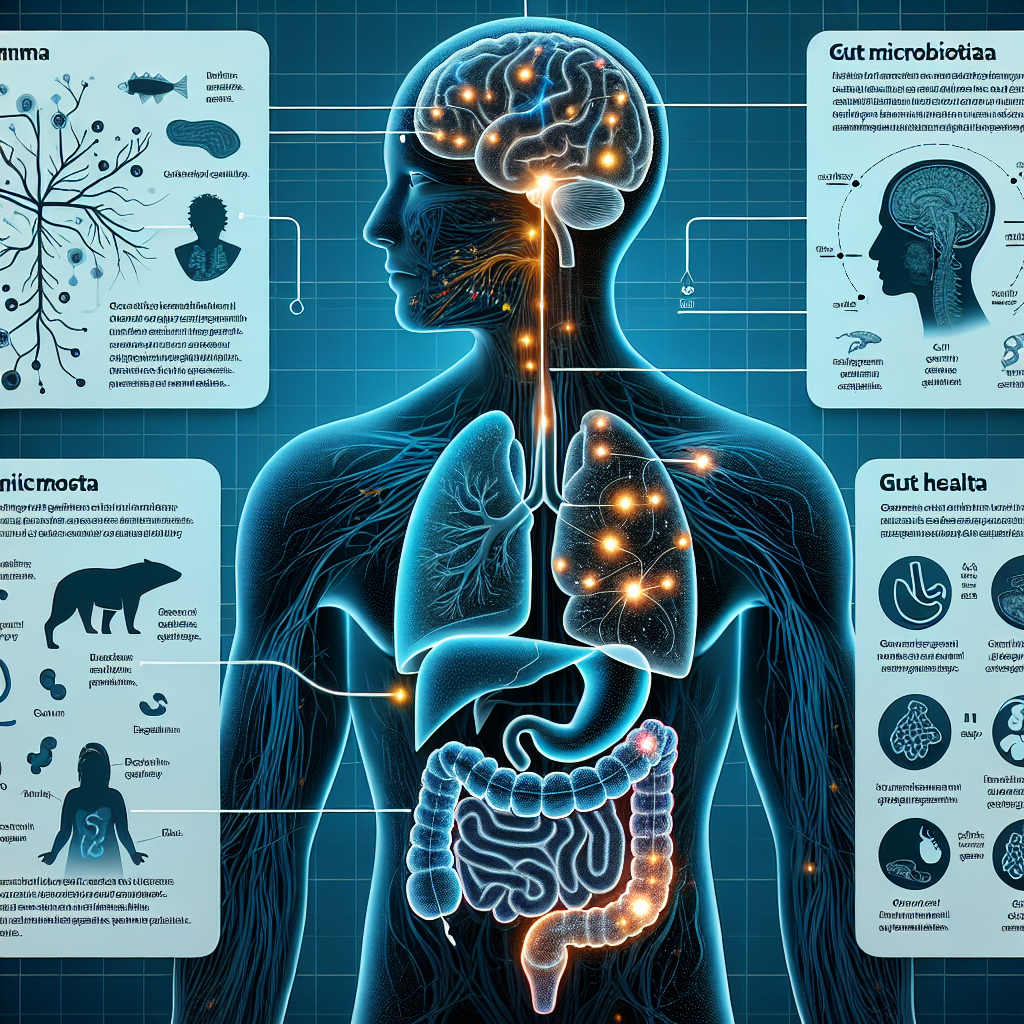The Truth About the Gut-Brain Connection

Discover the truth about the gut-brain connection! Uncover the secrets of your health and wellness by understanding this crucial relationship. Visit My Vibrant Vitality now to learn more.
Unveiling the Mystery: The Truth About the Gut-Brain Connection
The human body is a complex system of interconnected parts, each playing a crucial role in maintaining overall health and well-being. One such connection, often overlooked, is the intricate relationship between the gut and the brain. This connection, known as the gut-brain axis, is a bidirectional communication system that links the central nervous system with the enteric nervous system. It’s a fascinating area of study that has been gaining significant attention in recent years, as researchers continue to unveil the mystery surrounding the truth about the gut-brain connection.
The gut-brain axis is not a new concept. However, it is only in recent years that scientists have begun to understand the extent of its influence on both physical and mental health. The gut, often referred to as the ‘second brain,’ houses approximately 100 trillion microorganisms, collectively known as the gut microbiota. These microorganisms play a pivotal role in the body’s overall health, influencing everything from digestion to the immune system, and even our mood and mental health.
The gut and brain communicate through various pathways, including the vagus nerve, a cranial nerve extending from the brainstem to the abdomen, and through chemicals produced by gut bacteria. This communication is so influential that it can impact our emotions, decision-making processes, and perception of the world around us. For instance, it’s not uncommon to experience gastrointestinal upset during periods of high stress or anxiety. This is a clear demonstration of the gut-brain connection at work.
Moreover, research has shown that the gut microbiota can influence the brain’s biochemistry and behaviors. Certain strains of bacteria found in the gut can produce neurotransmitters, such as serotonin and dopamine, which play a crucial role in mood regulation. In fact, approximately 90% of the body’s serotonin, a neurotransmitter often associated with feelings of happiness and well-being, is produced in the gut. This finding has led researchers to explore the potential role of gut health in treating mental health disorders, such as depression and anxiety.
Furthermore, the gut-brain connection has been linked to a variety of health conditions beyond mental health. For example, research has suggested a potential link between gut health and neurodegenerative diseases, such as Parkinson’s and Alzheimer’s. Additionally, alterations in the gut microbiota have been associated with conditions such as autism, obesity, and inflammatory bowel disease.
However, while the gut-brain connection is undoubtedly influential, it’s important to note that it’s just one piece of a complex puzzle. Maintaining a healthy gut is crucial for overall health, but it’s not a cure-all solution. A balanced diet, regular exercise, adequate sleep, and stress management are all essential components of overall health and well-being.
In conclusion, the gut-brain connection is a fascinating area of study that has the potential to revolutionize our understanding of health and disease. As researchers continue to delve into the intricacies of this connection, we can expect to see a growing emphasis on the role of gut health in both physical and mental well-being. The truth about the gut-brain connection is that it’s a complex, bidirectional communication system that plays a crucial role in our overall health. As we continue to unveil the mystery surrounding this connection, it’s clear that the gut is not just about digestion – it’s a key player in our overall health and well-being.
Decoding the Gut-Brain Connection: Facts and Misconceptions

The gut-brain connection is a fascinating and complex relationship that has been the subject of extensive research in recent years. This connection, also known as the gut-brain axis, refers to the bidirectional communication between the central nervous system (the brain) and the enteric nervous system (the gut). It’s a concept that has been gaining traction in both the scientific community and popular culture, but it’s also one that is often misunderstood.
The gut-brain connection is not a new concept. In fact, it has been recognized for centuries that the gut and the brain interact. However, it is only in recent years that we have begun to understand the extent and significance of this connection. The gut and the brain communicate through a variety of mechanisms, including neural, hormonal, and immune pathways. The gut, for instance, produces about 90% of the body’s serotonin, a neurotransmitter that helps regulate mood, sleep, and appetite.
Moreover, the gut is home to trillions of bacteria, collectively known as the gut microbiota. These bacteria play a crucial role in our health, influencing everything from digestion to immune function. Recent research suggests that the gut microbiota may also influence our brain function and mental health. For example, certain strains of bacteria have been found to produce neurotransmitters, while others can modulate the body’s stress response.
However, while the gut-brain connection is a promising area of research, it’s important to separate fact from fiction. One common misconception is that the gut is often referred to as the “second brain”. While it’s true that the gut has its own network of neurons and can function independently of the brain, it does not have the same cognitive abilities. The gut cannot think, learn, or remember in the way that the brain can.
Another misconception is that altering the gut microbiota can cure mental health disorders. While there is evidence to suggest that the gut microbiota can influence mental health, the relationship is complex and not fully understood. It’s likely that the gut microbiota is just one piece of the puzzle, and that other factors, such as genetics and environment, also play a role. Therefore, while probiotics and other interventions may have potential as adjunct treatments, they should not be seen as a magic bullet.
Finally, it’s important to remember that much of the research on the gut-brain connection is still in its early stages. Many studies have been conducted in animals, and while these findings are promising, they may not necessarily translate to humans. More research is needed to fully understand the mechanisms underlying the gut-brain connection and to develop effective interventions.
In conclusion, the gut-brain connection is a complex and fascinating area of research that holds great promise for our understanding of health and disease. However, it’s also an area that is often misunderstood and oversimplified. As we continue to explore this connection, it’s important to approach it with a critical eye, separating fact from fiction and recognizing the limitations of our current understanding. Only then can we truly harness the potential of the gut-brain axis for the benefit of human health.
The Hidden Truth: Understanding the Impact of the Gut-Brain Connection on Health
The truth about the gut-brain connection is a fascinating topic that has been gaining significant attention in the scientific community. This connection, often referred to as the gut-brain axis, is a bidirectional communication system between the gastrointestinal tract and the central nervous system. It is a complex network that not only ensures the proper maintenance of gastrointestinal homeostasis but also significantly influences our mental and emotional health.
The gut-brain connection is mediated by various pathways, including the vagus nerve, the immune system, and the gut microbiota. The vagus nerve, a long nerve that extends from the brain to the abdomen, is one of the primary routes of communication between the gut and the brain. It transmits signals in both directions, allowing the brain to influence gut function and vice versa.
Moreover, the immune system plays a crucial role in the gut-brain connection. The gut is home to approximately 70% of the body’s immune cells, which can influence brain function by producing various chemicals. These chemicals can travel to the brain and affect its function, potentially contributing to mental health disorders such as depression and anxiety.
Perhaps the most intriguing aspect of the gut-brain connection is the role of the gut microbiota. These trillions of microorganisms residing in our gut have a profound impact on our health and well-being. They produce various substances, including neurotransmitters like serotonin and dopamine, which can influence brain function and behavior.
Emerging research suggests that alterations in the gut microbiota may contribute to a variety of neurological and psychiatric disorders, including autism, depression, and anxiety. For instance, individuals with these conditions often have a different gut microbiota composition compared to healthy individuals, suggesting a potential role of the gut microbiota in these disorders.
Furthermore, studies have shown that manipulating the gut microbiota, such as through the use of probiotics or dietary interventions, can influence brain function and behavior. This has led to the concept of “psychobiotics,” probiotics that confer mental health benefits. While this is a relatively new field of research, it holds great promise for the development of novel therapeutic strategies for mental health disorders.
However, it’s important to note that while the gut-brain connection is a promising area of research, it’s still in its early stages. Many of the studies conducted so far have been in animals, and human studies are needed to confirm these findings. Moreover, the gut-brain connection is incredibly complex, and we are only beginning to scratch the surface of understanding it.
In conclusion, the gut-brain connection is a fascinating and complex system that significantly influences our health and well-being. It involves various pathways, including the vagus nerve, the immune system, and the gut microbiota, and alterations in this system may contribute to a variety of neurological and psychiatric disorders. While research in this area is still in its early stages, it holds great promise for the development of novel therapeutic strategies for mental health disorders. As we continue to unravel the mysteries of the gut-brain connection, we may be able to harness its power to improve our health and well-being.